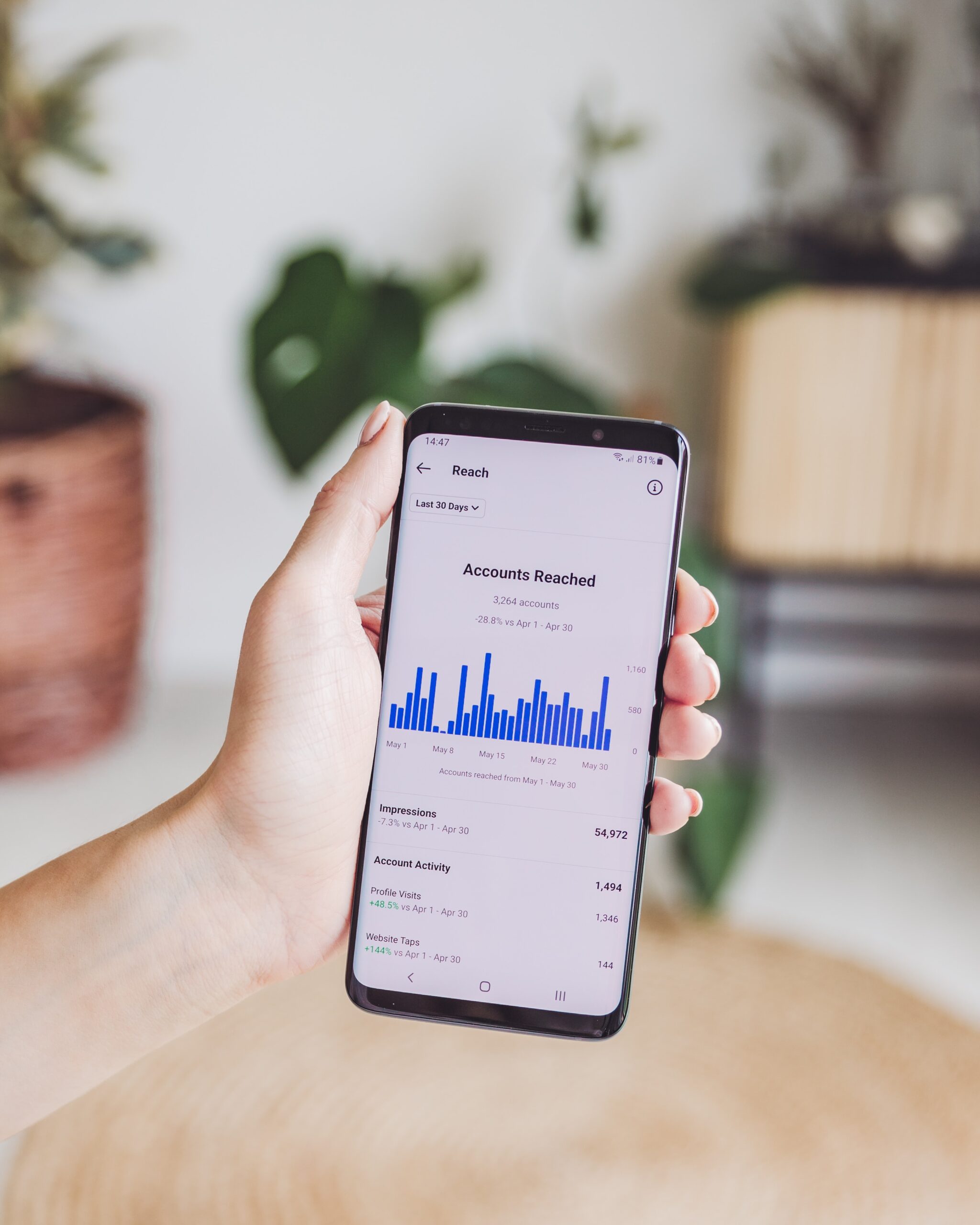In today’s world, social media is huge, and predictive analytics is changing the game. This tech gives businesses deep insights into what users like and do online12. But have you ever thought about how these algorithms work? Or how predictive analytics shapes our digital lives? Let’s explore this exciting area and see how predictive analytics changes social media.
Key Takeaways
- Predictive analytics in social media algorithms offer businesses valuable insights into user behavior and trends.
- The significance of predictive analytics lies in its ability to forecast trends and user actions, providing a competitive edge in the digital landscape.
- Social media predictive analytics empowers organizations to anticipate customer needs, refine marketing strategies, and stay ahead of the curve.
- Leveraging predictive analytics can lead to enhanced customer experiences, optimized inventory management, and improved resource allocation.
- Businesses that utilize predictive analytics in social media are 2.2 times more likely to exceed revenue goals.
Understanding Predictive Analytics and Its Importance
Predictive analytics uses data and algorithms to guess what will happen next3. It looks at past and present data to find patterns. This helps companies predict trends and make better choices3.
What is Predictive Analytics?
Predictive analytics includes many methods like statistical modeling and data mining4. It uses old data and new tech to help businesses make smart decisions4.
Key Benefits of Predictive Analytics
- Improved customer targeting and retention3
- Enhanced decision-making and risk management3
- Optimized operations and increased efficiency3
- Increased revenue and competitive advantage3
Role in Data-Driven Decision Making
Predictive analytics is key for making smart choices3. It helps businesses predict trends and challenges. This way, they can tackle problems and grab new chances3.
“Predictive analytics allows us to make more informed decisions, reduce risks, and capitalize on opportunities that may have been overlooked in the past.”
Using machine learning and data mining, predictive analytics changes how companies work34. It makes them more flexible, efficient, and focused on customers34.
How Social Media Algorithms Use Predictive Analytics
Social media algorithms are key to the personalized content we love. They match us with content that fits our interests. By using predictive analytics, they analyze our behavior to give us tailored experiences.
An Overview of Social Media Algorithms
Predictive analytics is vital for social media algorithms. Platforms like Facebook, Twitter, and LinkedIn use machine learning to understand us. They look at our data to guess what we’ll like next5.
This helps them show us content we’ll enjoy and target ads better. It’s all about making our online experience better.
Predictive Models in Action
Using predictive analytics is complex. First, platforms gather data from our interactions and more6. Then, they use machine learning to find patterns in this data5.
These patterns help predict what we’ll like and when. This way, they can show us content that’s just right for us.
These models look at how we engage with content and what we say about it6. They use this to guess what we’ll like next5. This makes our online experience more personal and fun.
Thanks to predictive analytics, social media is more personal than ever7. It uses data and machine learning to give us a better experience. This keeps us coming back for more.
“Predictive analytics in social media allows us to create personalized content that resonates with our users, ultimately driving higher engagement and better outcomes for both the platform and the audience.”
Data Collection Methods for Predictive Analytics
To use predictive analytics in social media, we need a smart plan for collecting data. As experts, we know how important it is to get different kinds of data. This includes user behavior patterns, how people interact with content, and data from social networks8.
Types of Data Used
The data we use in predictive analytics for social media is very wide-ranging. It includes things like who people are, how they act, and how they engage with content8. By using these data mining techniques, we can find insights that help us suggest content, target ads, and improve user experiences.
Ethical Considerations in Data Collection
When we explore ethical AI and predictive analytics, we must think about the ethics of collecting data. It’s key to protect user privacy, get their consent, and use their personal info responsibly8. Finding a balance between getting insights and following strict data rules is a big challenge.
By carefully picking the data we use and thinking about the ethics of collecting it, we can make the most of predictive analytics in social media. This way, we keep our users’ trust and confidence89.
“Predictive analytics models leverage past data to forecast future events.”9
Enhancing User Experience with Predictive Analytics
Predictive analytics is changing how social media platforms improve user experience. They use advanced algorithms and machine learning to offer personalized content and ads. These are tailored to each user’s unique preferences and behavior10.
Personalization and Content Recommendations
Predictive analytics makes content recommendations more personal. It analyzes user behavior to guess what content they’ll like. This way, platforms can make their feeds more engaging, keeping users interested and loyal10.
Ad Targeting and User Engagement
It also makes ad targeting more effective, boosting user engagement. By studying user data11, platforms can show ads for products users might buy. This approach makes ads more relevant and helps marketers get better results10.
The use of predictive analytics in social media has been a big leap forward11. It helps platforms understand and meet users’ needs better. This leads to more dynamic and personalized experiences, keeping users happy and engaged12.

“Predictive analytics transforms current web design by providing data-driven insights resulting in dynamic, individualized user experiences.”10
Challenges of Utilizing Predictive Analytics in Social Media
Predictive analytics has a lot of promise for making social media better. But, it’s not easy to use it everywhere. Big problems include data privacy and algorithm bias13.
Data Privacy Concerns
Using user data for predictive analytics in social media raises big privacy worries. Companies must deal with tough ethical and legal issues. They need to use personal info responsibly and openly13.
Algorithm Bias and Its Implications
Predictive analytics can keep old biases alive in social media, leading to unfair results. This can hurt some groups, making things unfair and exclusive13.
To fix these issues, we need to work on making things clearer, fairer, and more accountable. It’s important for tech people, data experts, and lawmakers to work together. This way, we can use predictive analytics wisely and safely13.
As we keep using predictive analytics in social media, finding the right balance is key. We must focus on keeping user data safe, making sure things are fair, and developing tech responsibly. This way, we can use predictive analytics to its full advantage while avoiding its downsides1314.,
“The use of predictive analytics in social media algorithms raises important questions about data privacy, algorithmic bias, and the need for greater transparency and accountability.”
| Challenge | Description | Potential Impact |
|---|---|---|
| Data Privacy Concerns | The collection and use of user data for predictive analytics raises ethical and regulatory challenges. | Undermines user trust, exposes personal information, and requires careful compliance with data protection laws. |
| Algorithm Bias | Predictive models can perpetuate existing societal biases, leading to unfair or discriminatory outcomes. | Reinforces negative stereotypes, limits opportunities, and undermines the principles of fairness and inclusivity. |
By tackling these problems and using responsible methods, social media can use predictive analytics wisely. This way, they can keep user privacy and fairness in mind1314.,
The Impact of Predictive Analytics on Marketing Strategies
Predictive analytics is changing the game in marketing. It helps businesses make smart choices based on data. Marketers can now guess what customers will do next, find new leads, and tailor their ads for better results15.
ROI from Predictive Analytics
Investing in predictive analytics is a smart move for many companies. The global market for predictive analytics is growing fast, from almost $12 billion in 2022 to $27 billion by 202616. It helps cut down costs and boosts profits by using AI and other advanced tech16.
With predictive analytics, companies can pick the best times for ads, avoid wasting money when demand is low, and choose the right channels for ads16. It also helps in upselling and cross-selling by understanding customer behavior16.
Case Studies of Successful Implementations
Many industries have seen the benefits of predictive analytics in their marketing. In e-commerce, it helps save on ads by focusing on the right customers16. Healthcare uses it to keep patients from leaving, and finance uses it to make better ad choices15.
Integrio Systems is a great example. They’ve been using AI for digital marketing for 20 years16. By using predictive analytics, they’ve seen big improvements in how they connect with customers and the success of their campaigns15.
| Industry | Predictive Analytics Implementation | Key Benefits |
|---|---|---|
| E-commerce | Targeted advertising, customer behavior analysis | Cost savings, improved ROI |
| Healthcare | Churn prediction, proactive customer retention | Enhanced customer loyalty, reduced attrition |
| Financial Services | Custom marketing analytics dashboards, data-driven decision making | Optimized marketing campaigns, higher ROI |
Predictive analytics is a game-changer for marketing. It helps businesses make better choices, improve their campaigns, and increase their ROI161517.

Future Trends in Predictive Analytics for Social Media
The digital world is changing fast, and predictive analytics in social media is set to make big leaps. New tech like quantum computing and quick data processing will boost AI’s power. This will change how businesses use social media analytics18.
Emerging Technologies and Innovations
Quantum computing is a game-changer. It will make data analysis much faster and more accurate18. This means businesses can react quicker to changes in the market18.
AI will get smarter, helping in fields like healthcare and finance18. Predictive analytics will also make customer experiences better. Businesses will know what customers want and need, leading to more personalized services18.
But, there will be worries about keeping data safe and using AI responsibly18.
Predictions for Algorithm Development
The future of social media analytics will focus on making things easier and more automated. AI will help non-techies use predictive analytics18. Social media platforms will collect lots of data, helping businesses make smart predictions19.
Companies like Netflix are already using predictive analytics to suggest content based on what users watch19. Retailers are using social media to guess what people want to buy, helping them sell more and save money19.
Businesses need to keep up with these trends to stay ahead in the digital world1819.
The Role of Artificial Intelligence in Predictive Analytics
Artificial intelligence (AI) has changed the game in predictive analytics. It helps businesses make better decisions by analyzing data20. AI can look at huge amounts of data fast, finding solutions in minutes20. This makes predictions more accurate and detailed, helping understand user behavior and content better.
Machine Learning Techniques Used
At the core of AI in predictive analytics are advanced machine learning methods. These include supervised and unsupervised learning, deep learning, and natural language processing21. Machine learning lets systems learn and get better over time, without needing to be programmed21. AI has made predictive analytics more accurate, scalable, and efficient21.
Combining AI with Predictive Models
Adding AI to predictive analytics brings many benefits. It improves accuracy, allows for real-time analysis, and automates data processing21. AI handles big datasets, making data quality better and automating model development21. This leads to better personalization and content recommendations, as algorithms understand user preferences better20.
In various industries, AI-driven predictive analytics is changing how decisions are made and operations run22. Companies using AI analytics grow, while others may not keep up22. AI analytics are great for making quick decisions from different data sources, even in unexpected situations like the COVID-19 pandemic22.
The future of predictive analytics is closely tied to AI’s progress. As businesses aim to lead, using AI-powered predictive models will be key. It will drive innovation, improve customer experiences, and help achieve lasting growth202122.
Actionable Steps for Brands to Leverage Predictive Analytics
As social media changes, using predictive analytics in our marketing is key. We need to set clear goals, make sure our data is good, and use insights in our business plans23.
Best Practices for Implementation
Using predictive analytics well means we must watch our performance closely. We should work together across teams to understand our data fully24. By setting goals and using data ethically, we can make strategies that really connect with our audience and bring real results23.
Tools and Software Recommendations
There are many tools and software out there to help with predictive analytics. Whether you’re a big company or a small one, there’s something for everyone. These tools help us find important insights, make content personal, and improve our social media efforts25.
Choosing the right tools for us and keeping our strategies fresh lets us use predictive analytics to the fullest. This way, we can give our customers amazing experiences and stay ahead23.
FAQ
What is predictive analytics in social media?
What are the key benefits of predictive analytics?
How do social media algorithms use predictive analytics?
What types of data are used in predictive analytics for social media?
How does predictive analytics enhance the user experience on social media?
What are the challenges in utilizing predictive analytics in social media?
How does predictive analytics impact marketing strategies?
What are the future trends in predictive analytics for social media?
How does artificial intelligence contribute to predictive analytics in social media?
What are the actionable steps for brands to leverage predictive analytics?
Source Links
- Social Media Predictive Analytics: Unveiling the Future – Aim Technologies
- Predictive Analytics: Shaping Social Media’s Future
- What is predictive analytics? Importance, benefits, & examples
- Definition, Examples, Techniques, and More
- Harness the Power of AI: A Comprehensive Guide to Predictive Analytics in Social Media | Kubbco
- How can you use predictive analytics to improve your social media strategy?
- How to Rise Above Social Media Algorithms
- Data Science and Predictive Analytics – MS in Predictive Analytics & Risk Management
- Top 5 Predictive Analytics Models and Algorithms
- Predictive Analytics to Enhance User Experience
- How Predictive UX Analytics is Revolutionizing Digital Design
- Council Post: Harnessing Predictive Analytics: Boosting SEO Strategies With AI
- Addressing the Harmful Effects of Predictive Analytics Technologies
- Navigating Challenges in Predictive Analytics for Marketing
- Predictive Analytics For Marketing Teams
- Predictive Analytics in Digital Marketing: Role & Impact
- The Impact of AI on Predictive Analytics in Marketing Strategies
- The Future of Predictive Analytics: Trends and Innovations to Watch
- Predictive analytics: Forecasting Future Trends with Social Media Data – FasterCapital
- AI Predictive Analytics: The Key to Unlocking Business Insights | Mailchimp
- AI’s Role in Enhancing Predictive Analytics
- AI for predictive analytics: Use cases, benefits and development
- What is Predictive Analytics in Marketing? (7 Use Cases)
- 4 Industry Examples of Leveraging Predictive Analytics
- Leveraging Predictive Analytics for Personalized Customer Journeys












